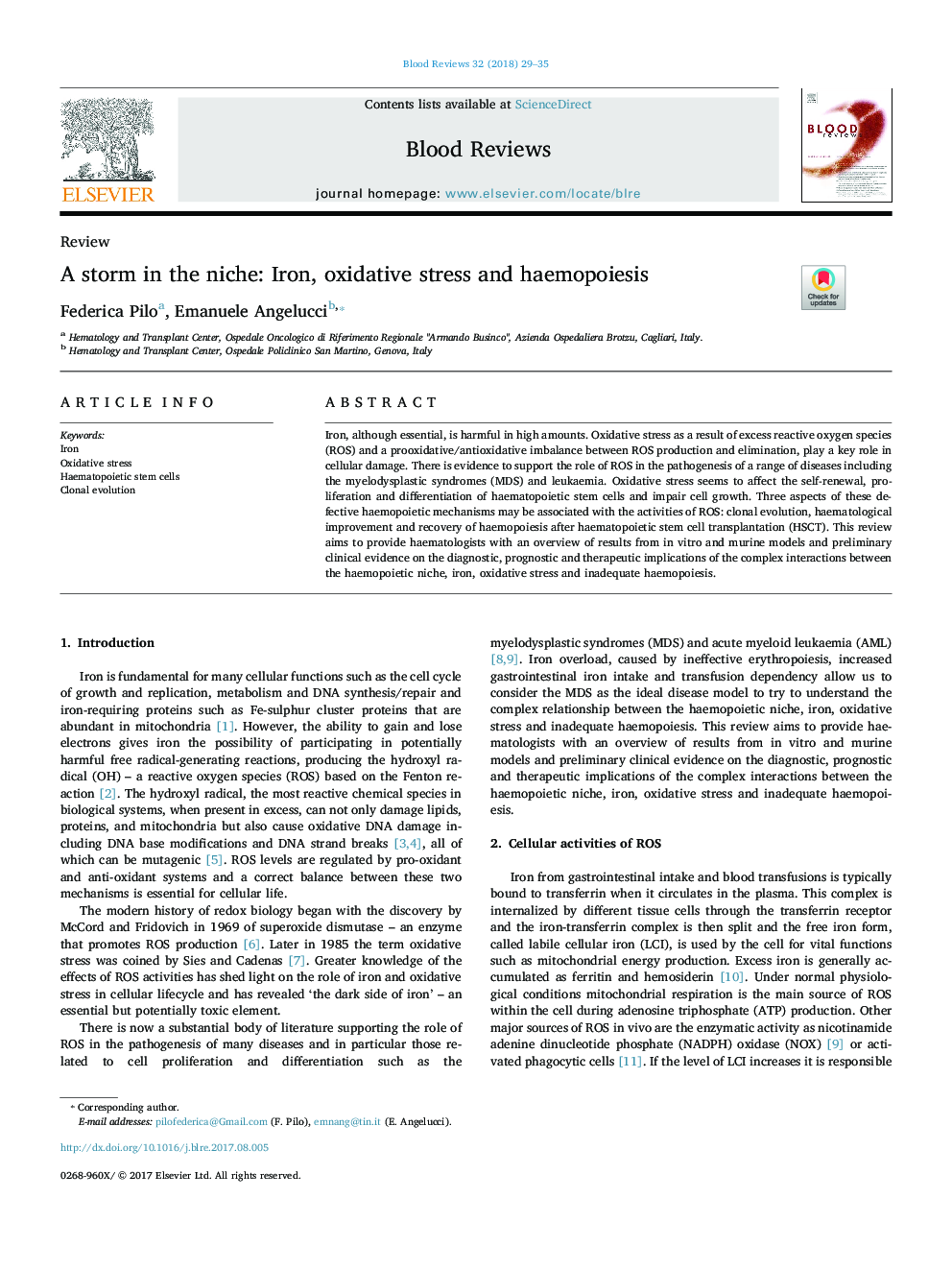| Article ID | Journal | Published Year | Pages | File Type |
|---|---|---|---|---|
| 8432013 | Blood Reviews | 2018 | 7 Pages |
Abstract
Iron, although essential, is harmful in high amounts. Oxidative stress as a result of excess reactive oxygen species (ROS) and a prooxidative/antioxidative imbalance between ROS production and elimination, play a key role in cellular damage. There is evidence to support the role of ROS in the pathogenesis of a range of diseases including the myelodysplastic syndromes (MDS) and leukaemia. Oxidative stress seems to affect the self-renewal, proliferation and differentiation of haematopoietic stem cells and impair cell growth. Three aspects of these defective haemopoietic mechanisms may be associated with the activities of ROS: clonal evolution, haematological improvement and recovery of haemopoiesis after haematopoietic stem cell transplantation (HSCT). This review aims to provide haematologists with an overview of results from in vitro and murine models and preliminary clinical evidence on the diagnostic, prognostic and therapeutic implications of the complex interactions between the haemopoietic niche, iron, oxidative stress and inadequate haemopoiesis.
Related Topics
Life Sciences
Biochemistry, Genetics and Molecular Biology
Cancer Research
Authors
Federica Pilo, Emanuele Angelucci,
